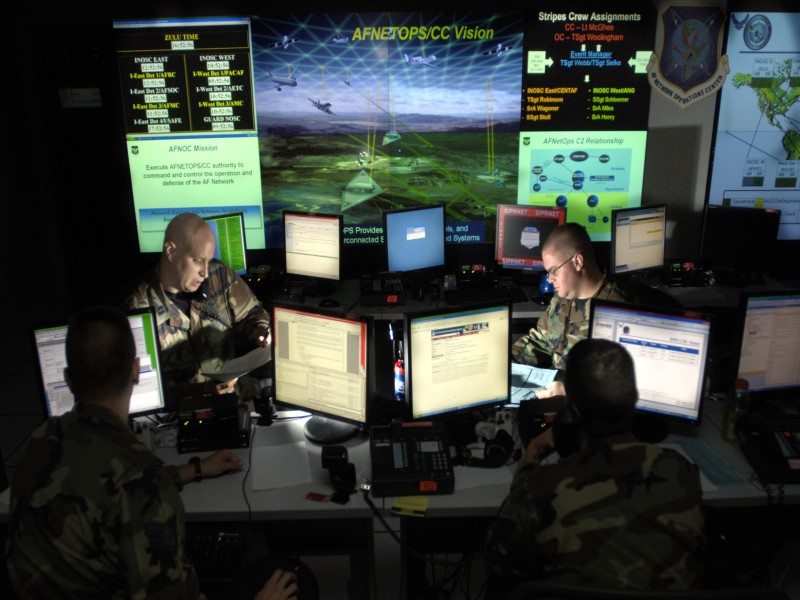The vice commander of Air Force Space Command has noted the shift in focus from tangible hardware to the expansion of cyberspace.
Lt. Gen. Michael Basla describes cyberspace and the electromagnetic spectrum as the military’s growing common link connecting all domains: land, air, sea and space.
“Not long ago when we spoke of the cyberspace domain, the focus was on the terrestrial networks and the backbone hardware,” General Basla said. “We talked about servers, routers, cable, fiber; things we can see and touch. But today the backbone has increasingly expanded … and cyberspace has expanded with it.”
General Basla urged a cultural change on how the Air Force develops its cyber force.
“Aircraft and satellites may change, but that’s incremental change, and the platforms continue to obey the physical domain laws,” General Basla said. “What do cyber operators need for a domain where the platform isn’t stable and (is) constantly changing?”
The general explained that despite its successes, cyberspace qualification training today doesn’t necessarily guarantee the force is qualified tomorrow.
“Cyber professionals need to continually train on network ranges, and continually re-educate themselves,” the general said. “To be ahead in this game is to be at the cutting edge of everyone else, from teenager to terrorist.”
Aside from robust training, General Basla said, a single Air Force network is a major focus and critical to the service keeping an advantage in the cyber domain.
“Multiple information domains significantly complicate our processes in defending the network,” he said. “A myriad of architectures and configurations complicates the commander’s ability to control the information flow, including how to prioritize and deliver the best information to the joint fight.”
The military uses operational reports to help ensure commanders have global situational awareness of the network.
“Today, I receive OPREPs from around the globe on the health and welfare of our nets,” the general said. “We’re still working on the rules: on when something gets reported and who submits a report … but I can tell you that this is the best posture we’ve been in, in my 32-year career; yet we’re not nearly good enough.”
Cyberspace changes constantly, so keeping up the latest technology is not the answer to defense, although it is important, General Basla said.
“The key to our defensive strategy is stability, through processes and skilled people, as we operationalize and normalize cyberspace,” he said. “The one guarantee in today’s cyberspace domain is that it will be different in the future.”










